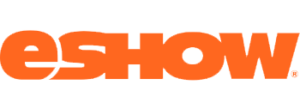Successful onsite exhibit sales are crucial for the financial health and growth of trade shows and exhibitions. Managing these sales effectively requires meticulous planning, real-time management, and post-event analysis. This comprehensive guide will provide actionable tips for running successful onsite exhibit sales, integrating insights from industry best practices and leveraging eShow’s suite of products.
The Importance of Onsite Exhibit Sales
Onsite exhibit sales are the backbone of trade shows, generating significant revenue and driving engagement between exhibitors and attendees. Effective sales strategies ensure that exhibitors receive value, attendees find the products and services they need, and event organizers achieve their financial goals.
Benefits of Successful Onsite Exhibit Sales
- Increased Revenue: Onsite sales can significantly boost the event’s revenue.
- Enhanced Exhibitor Satisfaction: Efficient sales processes and strong support lead to higher exhibitor satisfaction and retention.
- Improved Attendee Experience: When exhibitors are satisfied, they are more likely to offer engaging and informative booths, enhancing the overall attendee experience.
Pre-Event Planning
Effective onsite exhibit sales begin long before the event starts. Here are some crucial steps in the pre-event planning phase:
Define Clear Objectives
Set clear, measurable goals for your exhibit sales. Objectives could include target sales figures, the number of booths sold, or the level of exhibitor satisfaction.
Actionable Tip: Use eShow’s Exhibit Sales Management tools to set and track these objectives. The platform allows you to monitor progress in real-time and adjust strategies as needed.
Market Your Event Effectively
Promote your event to potential exhibitors well in advance, starting with booking exhibitors for next year’s event as the current event is happening. After the most recent event, continue to promote your next event with a mix of email marketing, social media, and direct outreach to attract exhibitors. Highlight the benefits of exhibiting at your event, such as high foot traffic, targeted audience, and networking opportunities.
Actionable Tip: Create a comprehensive marketing timeline that outlines key milestones and promotional activities leading up to the event. Use eShow’s Exhibitor Marketing tools to automate and schedule these campaigns. Include a mix of content such as blog posts, case studies, and testimonials to showcase the value of exhibiting. Regularly update your event website with new information and use social media to generate buzz. By maintaining a consistent and strategic marketing effort, you can ensure maximum visibility and attract a high number of quality exhibitors.
Offer Early Bird Discounts
Encourage early sign-ups by offering discounts to exhibitors who commit while at the current event. This helps secure a baseline of committed exhibitors and generates early revenue.
Actionable Tip: Automate the discount application process using eShow’s Registration Management system, ensuring a smooth and hassle-free experience for exhibitors.
Onsite Exhibit Sales Strategies
Once the event begins, effective management and real-time adjustments are key to maximizing exhibit sales. eShow even provides onsite sales support to help maximize booth sales for your next event.
Streamlined Check-In and Setup
Ensure a smooth check-in and setup process for exhibitors. Provide clear instructions and support to help exhibitors set up their booths efficiently.
Actionable Tip: Use eShow’s Event Management platform to coordinate check-in times, assign setup assistants, and provide real-time support.
Real-Time Lead Tracking
Track leads in real-time to identify high-interest exhibitors and prioritize follow-ups. Use tools that allow exhibitors to capture and manage leads effectively.
Example: eShow’s Lead Retrieval system enables exhibitors to scan badges and collect contact details effortlessly, ensuring no potential lead is missed.
Communicate Important Information
Use eShow’s Exhibit Sales Management Tool to communicate important information like booth set up and dismantling times with exhibitors.
Actionable Tip: Schedule automated reminders and updates using eShow’s platform to ensure exhibitors receive timely information about critical details such as setup times, dismantling schedules, and any last-minute changes.
Personalized Exhibitor Support
Provide personalized support to exhibitors throughout the event. Assign dedicated support staff to address any issues and ensure exhibitors have everything they need for a successful show.
Example: eShow’s Exhibitor Management tools allow for efficient communication and support coordination, ensuring that all exhibitor needs are promptly met.
Post-Event Follow-Up
Effective post-event follow-up is crucial for converting leads into sales and ensuring exhibitor satisfaction.
Collect Feedback
Gather feedback from exhibitors to understand their experience and identify areas for improvement. Use surveys and direct communication to collect detailed insights.
Actionable Tip: Use eShow’s Survey Tools to create and distribute post-event surveys. Analyze the results to make data-driven improvements for future events.
Analyze Sales Data
Analyze the sales data to evaluate the success of your onsite exhibit sales strategies. Look at metrics such as the number of booths sold, revenue generated, and lead conversion rates.
Example: eShow’s Analytics and Reporting tools provide comprehensive insights into your sales performance, helping you understand what worked and what didn’t.
Build Long-Term Relationships
Follow up with exhibitors after the event to thank them for their participation and discuss future opportunities. Building strong relationships with exhibitors ensures they return for future events.
Actionable Tip: Use eShow’s CRM Integration to manage post-event communications and maintain ongoing relationships with exhibitors.
Maximizing Onsite Exhibit Sales with eShow
Running successful onsite exhibit sales requires careful planning, real-time management, and effective follow-up. By leveraging eShow’s comprehensive suite of tools, event organizers can streamline the entire process, from pre-event marketing to post-event analysis. Implementing these strategies will not only boost your revenue but also enhance exhibitor satisfaction and improve the overall attendee experience.For more information on how eShow’s tools can help you achieve onsite exhibit sales success, book a demo today.
